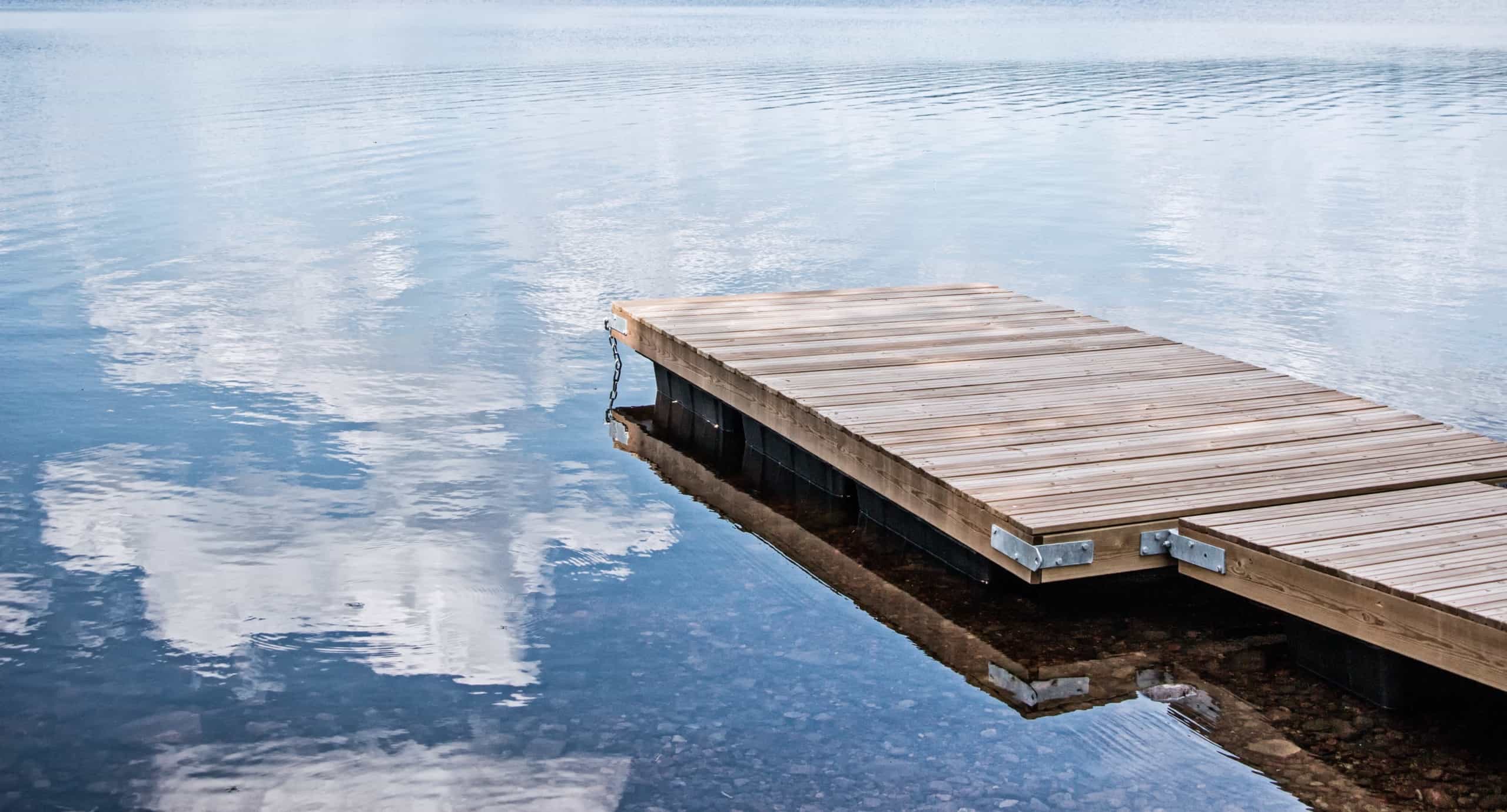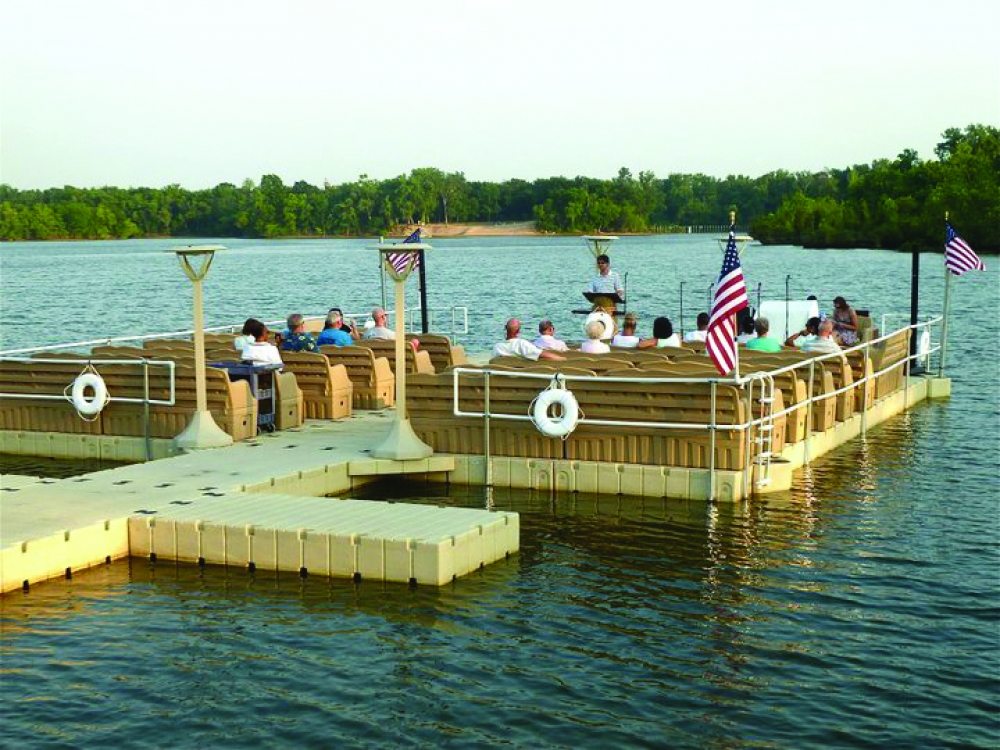Optimizing Your Outdoor Room with Specialized Floating Dock Providers
Optimizing Your Outdoor Room with Specialized Floating Dock Providers
Blog Article
Floating Docks: The Ideal Selection for Versatile Water Accessibility
Floating docks present an engaging remedy for a variety of water gain access to requires, offering versatility that goes beyond typical mooring choices. The modular nature of floating docks helps with modification, providing to specific needs.
Advantages of Floating Docks
Floating docks offer various benefits that improve water access for different applications. Their capability to drop and rise with changing water degrees makes them specifically helpful in atmospheres with changing trends or seasonal variants. This adaptability ensures that vessels can conveniently anchor without worry for the water's deepness, giving a reputable system for entertainment, commercial, and commercial usages.
Furthermore, floating docks are frequently built from long lasting materials that withstand rust, making them ideal for long-lasting use in marine atmospheres. Their setup is typically less invasive than conventional fixed docks, decreasing the environmental impact and assisting in quicker implementation (floating dock services). This flexibility allows for much easier moving or reconfiguration according to user demands or ecological modifications
Safety is another vital benefit; floating docks can offer steady access for individuals boarding or disembarking from watercrafts and reduce the risk of mishaps connected with unpredictable surface areas. They can be developed to suit a selection of accessories, such as cleats and fenders, enhancing capability. Overall, floating docks stand for an effective solution for enhancing water access throughout diverse markets while advertising safety and environmental sustainability.

Kinds Of Floating Docks
Various kinds of floating docks provide to different needs and environments, each designed with specific attributes to optimize functionality. The most typical types include modular docks, which include interlocking areas that permit easy customization and growth. These docks are suitable for recreational use, as they can be customized to fit various watercraft sizes and water problems.
An additional popular option is the stationary floating dock, which continues to be anchored in location yet floats with altering water degrees. floating docks. This type is especially matched for locations with minimal tidal fluctuations, giving secure access for fishing or swimming. Additionally, there are drive-on docks, which feature a sloped style that enables boats to quickly drive on and off, making them appropriate for individual boat and smaller sized vessels
For industrial applications, heavy-duty floating docks are offered, built from strengthened materials to endure significant loads and harsh marine environments. Eco-friendly floating docks use sustainable materials and designs to minimize ecological influence, commonly integrating functions like greenery to sustain neighborhood wild animals. Understanding the numerous kinds of floating docks makes certain that customers can choose the most ideal option for their particular requirements.
Installment Process Introduction
An effective installation of floating docks calls for cautious planning and interest to information to make certain optimum performance and security. The first step involves evaluating the website conditions, including water deepness, present, and possible obstacles. This analysis educates the choice of the suitable dock materials and layout tailored to the specific atmosphere.
Next, getting needed licenses is important, as lots of jurisdictions have laws relating to construction on water bodies. Once consents are safeguarded, the floating dock company installation can continue. Begin by preparing the structure, which may entail anchoring systems or pilings tailored to the dock type and regional conditions.
Complying with the structure setup, set up the dock areas according to manufacturer specs. Make certain that all parts are firmly fastened and aligned to stand up to ecological tensions. Setting the dock in the marked location, guaranteeing it is level and stable.

Maintenance Tips and Best Practices
After the installation procedure is full, continuous maintenance plays an important role in ensuring the longevity and capability of floating docks. Normal examinations need to be carried out to identify any kind of indicators of damages, wear and tear, or wear - floating dock company. Look for any kind of loose installations, fractures, or separation in the dock areas, as these can jeopardize architectural stability
Cleaning the dock is necessary to get rid of debris, algae, and various other build-up that can influence its appearance and safety and security. Use a gentle stress wash occasionally to keep tidiness without creating damage to the surface area. Additionally, using a protective sealer every few years can assist boost durability and stand up to environmental wear.
Take note of the mooring lines and anchors, guaranteeing they are totally free and safe and secure from rust. Change any degraded elements without delay to prevent threats. Seasonal adjustments might additionally be essential; during extreme weather, enhancing the dock or repositioning can avoid damages.
Applications for Floating Docks
Floating docks serve a wide variety of applications, catering to both leisure and business requirements. In leisure setups, they give seamless accessibility to waterways for tasks such as boating, angling, and swimming. Their flexible nature permits for installation in varying water levels, ensuring secure and secure accessibility no matter of tidal variations.
Commercially, floating docks are crucial for marinas and waterfront companies. They assist in the docking of vessels, allowing effective unloading and filling of products. Their modular style enables simple growth or reconfiguration to fit altering company needs, making them click for source ideal for watercraft services, scenic tour operations, or angling charters.
In addition, floating docks are used in ecological applications such as water research and habitat restoration. They can work as systems for clinical research studies, keeping an eye on water quality, or conducting wild animals studies without disturbing sensitive environments.
In industrial contexts, floating docks are employed in building jobs, offering accessibility to hard-to-reach locations for devices and personnel. Their convenience, durability, and very little effect on the atmosphere make them an optimal option for a variety of applications, enhancing both functionality and availability in numerous water-based environments.
Final Thought
Finally, floating docks stand for an ideal remedy for varied water access requires, owing to their adaptability, durability, and modular layout. These structures promote risk-free mooring for various applications while lessening environmental effect throughout setup. The lowered maintenance needs additionally enhance their usefulness. Because of this, floating docks offer as a useful asset for leisure, industrial, and environmental projects, guaranteeing reputable accessibility to waterways and advertising sustainable methods in marine atmospheres.
Floating docks present a compelling service for a variety of water access needs, providing adaptability that transcends standard mooring options.Floating docks offer numerous advantages that enhance water gain access to for different applications. Generally, floating docks represent an effective remedy for boosting water accessibility throughout varied industries while promoting safety and ecological sustainability.
An additional preferred choice is the stationary floating dock, which remains anchored in location however floats with changing water degrees.In verdict, floating docks stand for an optimal service for diverse water access requires, owing to their Going Here flexibility, durability, and modular layout.
Report this page